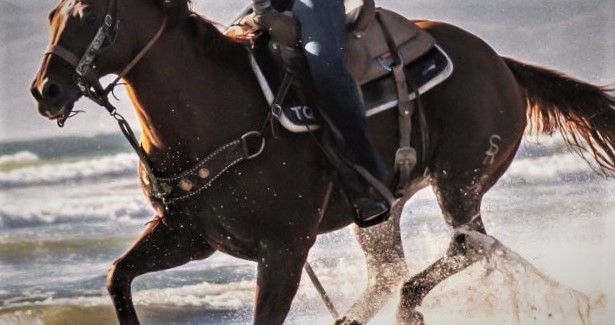
Miriam, the prophetess, Aaron’s sister, took a timbrel in her hand, and all the women came out after her with timbrels and with dances. And Miriam called out to them, “Sing to HASHEM, for very exalted is He; a horse and its rider He cast into the sea.” (Shemos 15:20-21)
Why is Miriam and the women’s choir at the sea singing this particular refrain? There are so many more appropriate verses and phrases that would seem to be more appropriate for women to sing. Why exalt the horses being thrown into the sea? Would it not be more fitting to sing, “This is my G-d and I will beautify Him”?! Why focus on the drowning of horses!? Why are the women led by Miriam the prophetess happily singing those particular words?
The Jewish People are excited to exit Egypt and be free from the tyranny of Egypt but there is a greater goal, the ultimate prize that awaits them. They are happily anticipating receiving the Torah. Instead of being slaves to an abusive Pharaoh following his cruel rules and being engaged in useless labor, the Jewish People are readying to become willing servants of a supremely kind G-d, and follow His wise instructions and labor lovingly in a way that brings ultimate meaning to every dimension life.
The biggest Mitzvah of all that equals all the other Mitzvos, and the biggest accomplishment to look forward to is Limud HaTorah, learning Torah. Here’s where things get complicated and the real question arises. Women are not obligated in the Mitzvah of Learning Torah. They are obligated to know Torah and all relevant Hallachos and ideas but learning, not. As one of my Rebbeim once explained to us, “If a woman would be able to take a pill would give her total knowledge in Torah matters she would not have to study again, but if a man would take such a pill, the continuous Commandment to learn would still be incumbent upon him.” So why would the women be excited to come to Mount Sinai and receive the Torah?! In a way, it’s not their business.
The Gemorah in Brochos says the following; Rav said to Rabbi Chiya: “By what virtue do women merit to receive the reward (of Torah learning)? Rabbi Ḥiyya answered: They merit this reward for bringing their children to read the Torah in the synagogue, and for sending their husbands to study Mishne in the study hall, and for waiting for their husbands until they return from the study hall.” (Tractate Brochos 17A)
How does this work? They play a supportive role, assisting their husbands and children. Armed with this information, let us see how valuable is the role of one who assists another.
The Mishne in Makos explains that even though two witnesses are enough to convict, when three witnesses step forward as a group then conspirators are spared when one of them is rendered invalid. All three are needed for a conviction and if they are found to be conspiring witnesses then all three are punished, even though the 3rd is technically an extra. He could try to excuse himself since two witnesses could do the job without him. Even still he is implicated and punished with the other two. “Rabbi Akiva says: The third does not come to be lenient rather, to be stringent concerning him and to render his halakhic status like these (the first two witnesses). And if the verse punishes one who associates with transgressors like transgressors, all the more so will pay a reward to one who associates with those who perform a Mitzvah like who perform the Mitzvah.”
Rabbi Akiva states a powerful principle. If the extra witness who was only a tag along to the main violators is punished then, how much more so in the positive direction if one plays a supportive albeit secondary role in the performance of a Mitzvah that they are to be credited like the ones who actually perform the Mitzvah.
Now we can get back to Miriam and her all women’s choir. Why were they singing about the horse and its rider drowning? What did the horse do except enable the rider to chase after the Jewish People!? Now that we know that the horse was punished for its supportive role, Miriam and the all-women’s choir appreciated they have what to look forward by galloping to Mount Sinai.



